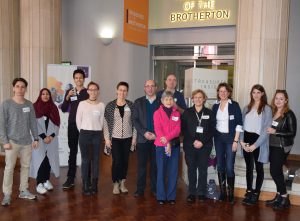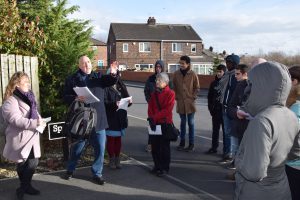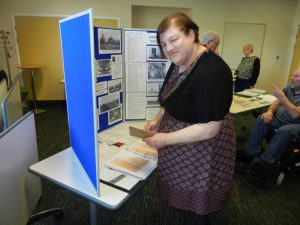
On Sunday 8th April, Dr David Amos hosted the finale of his Harworth Colliery in World War One project at Worksop Library. Funded by the Centre for Hidden Histories and produced in association with Nottingham Trent University and David’s not-for-profit community interest organisation, Mine2Minds Education, the project explored the ‘hidden history’ of the controversial development of Harworth Colliery in Nottinghamshire during the First World War.
The controversy focused on the involvement of German industrialists in a strategically important British industry (coalmining); later it was to centre on the character of Arnold Lupton, an academic, Liberal politician and mining engineer who founded the Anglo-German North Union Mining Co Ltd, which initially started developing Harworth Colliery in 1913. Along with his pacifist views Lupton was jailed during the war for his protests against the Government for its actions over Harworth (he chained himself to the railings in Downing Street). During the First World War, German workers from Harworth colliery were interned and the Company’s property and assets eventually impounded under the Trading with the Enemy Act of 1916.
David has been leading a team of community researchers to look into this difficult, yet fascinating and important history. The team conducted research in the Library at the National Coalmining Museum for England as well as at Kings Meadow Archives (The University of Nottingham) and at Bircotes, Worksop and Mansfield Libraries. The results of the team’s work were on display at Worksop Library on 8th April.
Comments by attendees at the launch included:
“Fascinating – a story I had not come across…Great presentation – excellent booklet – ideal location.” (Rob Armstrong, Retired)
“I learnt for the first time, how the war affected German companies and their employees…I used new research resources I did not previously know such as the National Mining Museum and Nottingham University Archives.” (Jim Dymond – Harworth Colliery Researcher)
“Love it!” (Pauline Codd – Harworth Colliery Researcher)

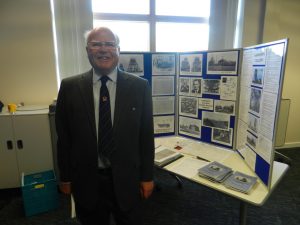
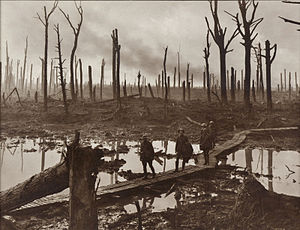
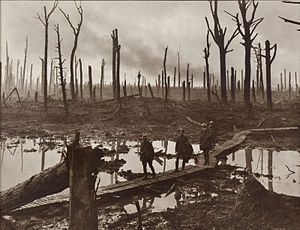 The Passchendaele campaign, fought in the Flanders mud, provides many of the most enduring images of the Western Front. It also remains one of the most controversial battles of the War. At this public conference, the continuing reinterpretation of the battle will be discussed as we approach the 100th anniversary of the ‘Battle of Mud’. The academic controversies concerning the Passchendaele campaign have often reflected differing viewpoints on British identity and the extent to which the War exemplified British values. The conference will explore how the War impacted on Britain’s communities and the impact it has had on the evolution of a shared identity. It will examine the various ways in which Britain has marked the First World War centenary, examining the social, cultural and political influences that have shaped the commemorations. As the Silk Mill Museum hosts the Weeping Window, from the installation ‘Blood Swept Lands and Seas of Red’ by Paul Cummins, the Conference at Derby University provides an opportunity to discuss what impact the centenary events have had on public knowledge and understanding of the Great War.
The Passchendaele campaign, fought in the Flanders mud, provides many of the most enduring images of the Western Front. It also remains one of the most controversial battles of the War. At this public conference, the continuing reinterpretation of the battle will be discussed as we approach the 100th anniversary of the ‘Battle of Mud’. The academic controversies concerning the Passchendaele campaign have often reflected differing viewpoints on British identity and the extent to which the War exemplified British values. The conference will explore how the War impacted on Britain’s communities and the impact it has had on the evolution of a shared identity. It will examine the various ways in which Britain has marked the First World War centenary, examining the social, cultural and political influences that have shaped the commemorations. As the Silk Mill Museum hosts the Weeping Window, from the installation ‘Blood Swept Lands and Seas of Red’ by Paul Cummins, the Conference at Derby University provides an opportunity to discuss what impact the centenary events have had on public knowledge and understanding of the Great War.